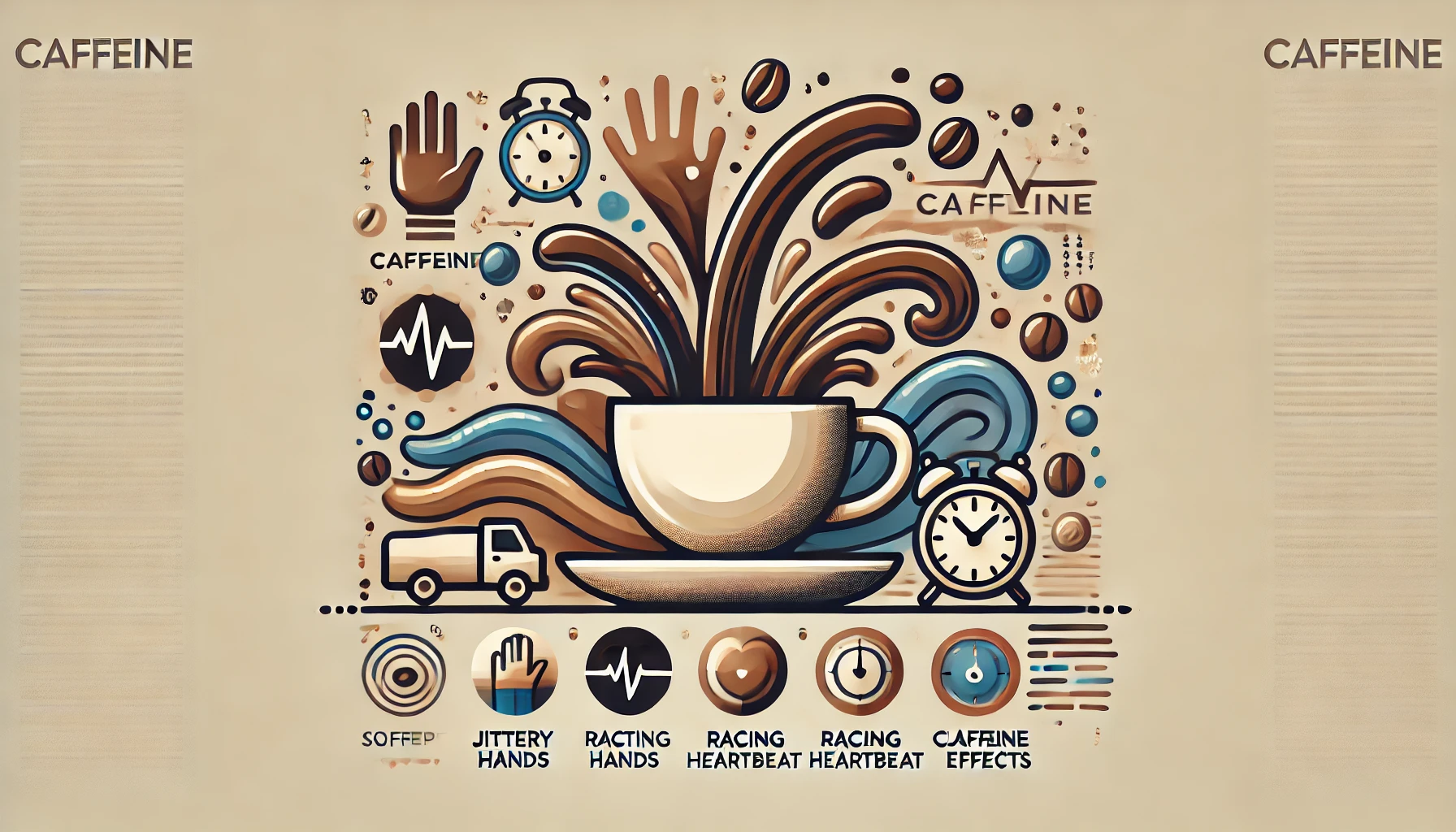Caffeine is a central part of many people’s daily routines, providing a quick energy boost and a way to kickstart the day. However, while moderate consumption is generally safe, excessive caffeine can lead to various side effects that impact physical and mental health. Let’s dive into these effects and how to mitigate them.
Understanding the Root of Caffeine Side Effects
Caffeine is a natural stimulant found in coffee, tea, energy drinks, and even chocolate. Its primary function is to stimulate the brain and nervous system, helping people feel more alert. However, this stimulation comes with a price when consumed excessively.
Jitteriness and Anxiety
One of the most noticeable side effects of caffeine is jitteriness. Consuming large amounts overstimulates the nervous system, leading to feelings of restlessness, nervousness, and, in some cases, outright anxiety. If you find yourself trembling or overly nervous after a cup of coffee, it might be a sign to cut back.
Caffeine Side Effects on Sleep: Insomnia Explained
Caffeine can remain in your system for hours, potentially disrupting sleep patterns. Regular late-day consumption can make it hard to fall or stay asleep, resulting in chronic sleep deprivation. Over time, this can lead to more severe health issues like fatigue and decreased cognitive function.
Digestive Problems and Caffeine Side Effects
High caffeine intake can irritate the stomach lining, leading to issues like acid reflux or upset stomach. Coffee, being acidic, is particularly notorious for this. Reducing consumption or switching to low-acid coffee can alleviate such symptoms.
Increased Heart Rate and Blood Pressure
Caffeine can temporarily increase heart rate and, in some individuals, lead to palpitations. People with pre-existing heart conditions should be especially cautious and monitor their intake.
Dependency and Withdrawal
Regular caffeine consumption can lead to dependency, making it hard to function without it. Withdrawal symptoms such as headaches, fatigue, and irritability can appear within hours of missed doses, lasting up to several days.
Managing Caffeine Consumption
Moderation is the key to enjoying caffeine without adverse effects. Adults should limit their intake to around 400 mg per day (about four cups of coffee). For those seeking alternatives, herbal teas, decaffeinated coffee, and plenty of water are excellent choices.
FAQs
The recommended limit for adults is 400 mg daily, equivalent to about four 8-ounce cups of coffee.
Yes, caffeine acts as a diuretic, leading to increased urination and potential dehydration if fluids are not replenished.
Yes, decaf coffee is not completely caffeine-free. It typically contains small amounts, around 2–5 mg per cup.
Excessive caffeine intake during pregnancy can increase risks of miscarriage or low birth weight. Pregnant women should limit intake to 200 mg per day.
Excessive caffeine can worsen anxiety and lead to mood swings in sensitive individuals.
Herbal teas, smoothies, and foods rich in natural sugars like fruits are great alternatives for a natural energy boost.
Conclusion
Caffeine, when consumed in moderation, can provide numerous benefits. However, understanding its side effects and managing your intake is essential for maintaining overall health and well-being. By making informed choices, you can enjoy caffeine without letting it disrupt your life.



